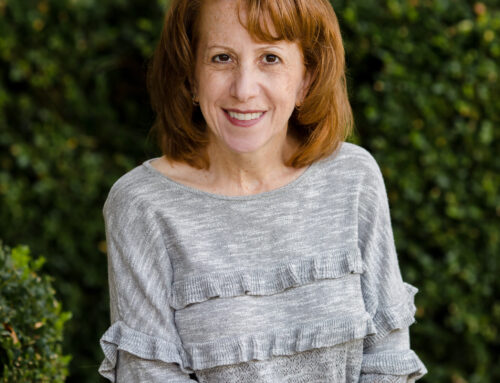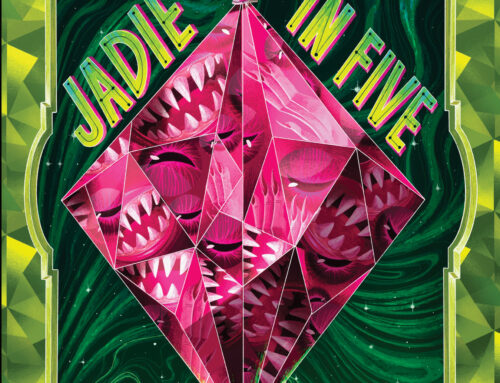 At a recent SCBWI conference, I had the opportunity to meet the talented Meg Medina. Listening to her speak was truly inspirational and aspirational for me as an author. She has won awards for her writing and last year was recognized as one of CNN’s Top 10 Visionary Women in America. She is a founding member of the We Need Diverse Books campaign. She is a very active in her community and can be heard on NPR talking about her books. I ‘m not positive, but I think there may be more than one of her. All I can say for sure is that the real Meg Medina took a few moments to answer a few questions for the Mafia.
At a recent SCBWI conference, I had the opportunity to meet the talented Meg Medina. Listening to her speak was truly inspirational and aspirational for me as an author. She has won awards for her writing and last year was recognized as one of CNN’s Top 10 Visionary Women in America. She is a founding member of the We Need Diverse Books campaign. She is a very active in her community and can be heard on NPR talking about her books. I ‘m not positive, but I think there may be more than one of her. All I can say for sure is that the real Meg Medina took a few moments to answer a few questions for the Mafia.
Middle Grade Mafia: You speak about drawing from real life experiences to create your stories. What advice would you give writers so they can tap into their own life history?
Meg Medina: I mean learning to use your memories as a portal to the true feelings and thoughts you had as a young person. It’s amazing what a few minutes every day of recalling a favorite game, an old enemy, a family dinner can reveal about what was important to us and what marked us. In so many ways the world has changed, but in the really big, lasting issues of what it means to grow up and away from our families, it’s remarkably the same as it has always been. The closer we can connect to that, the more authentic our writing.
MGM: How important do you think it is for an author have a strong brand/identity? Could you share yours?
MM: How I hate the word brand. It makes me think that I am like toothpaste or breakfast cereal.
Even so, there’s no getting around the public side of a life in publishing. I do think there is a place for thoughtful consideration of how you’d like the world to know you as an author. To me, the most important thing is how closely you can make that match what you truly want to see in yourself as an author.
I like when authors ask themselves what they want to stand for. It is a question of deciding the kind of aesthetic that you want to bring and about the topics that you’re passionate about in life. For me it’s like this: I am a feminist. I am someone shaped heavily by my Cuban roots. I am someone who believes that growing up is a tough, tough business. I am someone who values young people and who thinks that there is something almost sacred, really, about childhood.
I’ve worked hard, then to introduce myself to people as a writer who writes literary fiction about strong girls, tough circumstances facing young people, and Latino culture. My works – whether picture book or YA – center there. All the public “buzz” around me centers there, too. My social media tags reinforce that message. The community projects that I take on are shaped by those interests, too. In other words, I’m consistent, both in the external message and in how closely it reflects what I value.
MGM: You have written across the three categories of children’s literature (PB, MG, and YA). Was there one you found more difficult to write?
MM: They are all glorious in their own way – and difficult in their own way. I think the trick is matching the heart of the story you want to tell to the parameters of each form. For example, Yaqui Delgado Wants to Kick Your Ass would have made a lousy picture book (although, a high school in Virginia did just that as an assignment.)
MGM: Since we are a MG blog, I need to as a MG specific question. How were you able to capture the strong MG voice of Milagros de le Torre in MILAGROS: THE GIRL FROM AWAY?
MM: Again, I mined memories of what it was to be eleven and twelve. What I love about the middle grade girl is that she is strong and smart, but isn’t necessarily facing the avalanche of sexual tension, gender roles, and all the drama of young women as they get older. When I write middle grade, I tap into girl as adventurer, girl as sleuth, girl as imperfect kid.
MGM: You are a founding member of the We Need Diverse Books movement. Do you feel the industry is doing a better job in publishing and promoting books that reflect a wide spectrum of readers?
MM: I am almost afraid to say yes for fear of jinxing this year’s spectacular ALA awards, but okay, let’s dare.
Thanks to years of sustained pressure – WNDB among them – I think there are hopeful signs. Still, we have a long way to go to normalize stories that reflect the lives of all kids. Right now, they are still thought of as “other,” as somehow special because the character is Latino or Asian or disabled, etc.
In the near future, what I’d really like to see is systemic change. I like dreaming about editorial and marketing staffs that are more representative. This is not to say that white, female editors are incapable of finding great talent. That’s a silly idea. But I think that a diverse staff brings a much-needed sensitivity and offers a sense of access that isn’t present right now.
Also, from the school and library perspective, I’d like to see us ditch the displays built solely around cultural heritage. I’d like to see librarians hang library posters of the ALA winners beyond the Newbery and the Caldecott. There is amazing, prize-winning literature being honored via the Coretta Scott King Award, the Stonewall Award, the Pura Belpré, the American Indian Library Association Award, and many others. Bring those lists to the forefront – at least put up the posters – so that readers have a place to begin to broaden their reading palette.
MGM: What inspired you to create the Girls of Summer?
MM: Girls of Summer is basically a curated summer reading list of eighteen books for strong girls. It’s an online community, anchored by a live launch event every June in Richmond, Virginia. This year, we celebrate our fifth anniversary.
My friend Gigi Amateau (also a Candlewick author) and I had daughters who were leaving for college. In our sadness, we got to talking about how we had relied on books to help us raise them. In no time, we had 18 books – one for every year of their lives until college. These were books that we loved for what they said about the girl experience in all its horror and glory.
As it happens, Gigi and I both believe in the power of books and reading to connect and strengthen people. We grew our idea into a blog that featured a live launch event at our public library, where we’d “book talk” each title, bring in one of the authors for a Q & A, serve free ice cream, and raffle off the whole list. The Richmond Public Library agreed to purchase all the titles for its collection, and we also invited an independent bookseller (bbgb books) to handle sales to those girls who might want to purchase their own copies. That was in 2011.
As the years have gone on, the project has blossomed. We added author interviews every Friday, and the library – which hosts us – has just gone mad. They make buttons of the covers, decorate the whole library in honor of the featured authors. They provide refreshments and funding to bring in the author. It’s just something to see.
Five years later, this little idea is a THING in Richmond that’s been covered on NPR, CNN and other places. It takes a lot of time and resources, but it is so worthwhile to see 300 people – girls and their families and friends – gather in rock concert style for a summer reading list every year.
MGM: Is there a message you try to convey to the students during your school visits?
MM: I have enormous respect for young people and what they’re up against. When I visit a school, I mostly talk to them as me, a writer who is trying to tell the bumpy truth about growing up. It’s a vulnerable thing to be a writer, and it’s a vulnerable thing to be a kid. Both of those experiences can leave you raw. For both groups, our worst fear in life is that we’re somehow not enough, that we don’t have what it takes. I like to talk about how we – writers, kids…people – can decide that we are, in fact, enough
MGM: Lighter question: If Meg Medina was an animal, which one would she be?
MM: What a silly question. A platypus, of course. A little bit of everything.
—
A big thank you to Meg for being on the MGM blog. To learn more about Meg and her books, visit her website and follow her on Twitter. The learn more about the We Need Diverse Books campaign, go to the website and make sure you follow them on Twitter!






Leave A Comment